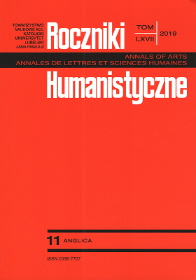Cirencester’s Ancient Name: Corinium or Carinium?
Cirencester’s Ancient Name: Corinium or Carinium?
Author(s): Andrew Charles BreezeSubject(s): Language and Literature Studies, Theoretical Linguistics, Historical Linguistics
Published by: Towarzystwo Naukowe KUL & Katolicki Uniwersytet Lubelski Jana Pawła II
Keywords: Cirencester; Roman Britain; British-Latin place-names; textual emendation
Summary/Abstract: Cirencester, some fifty kilometres west of Oxford, is an English town on the site of a Roman city. Even though its original name (after Ptolemy in the second century CE) was supposedly Corinium, giving the Ciren- of Cirencester, this has never had a satisfying etymology. However, Welsh câr ‘friend’ or Irish cara ‘friend’ may now permit emendation of Corinium to Carinium ‘place of Carinos,’ a personal form known elsewhere. It means ‘little beloved one, little friend’ and is compatible with development to Ciren-. If so, the mystery surrounding Cirencester, capital of the Dobunni, will be solved. The first Carinium would be the nearby Iron Age citadel of Bagendon Dykes. When the Romans occupied the area, they founded a city five kilometres away, transferring local people to it and applying the name of the old settlement to the new one, as elsewhere in Britain (Colchester, St Albans, Wroxeter). Modern Cirencester will thus (it seems) be called after Carinus or Carinos, an otherwise unknown Briton who occupied land at Bagendon some two millennia ago.
Journal: Roczniki Humanistyczne
- Issue Year: 67/2019
- Issue No: 11
- Page Range: 7-16
- Page Count: 10
- Language: English

